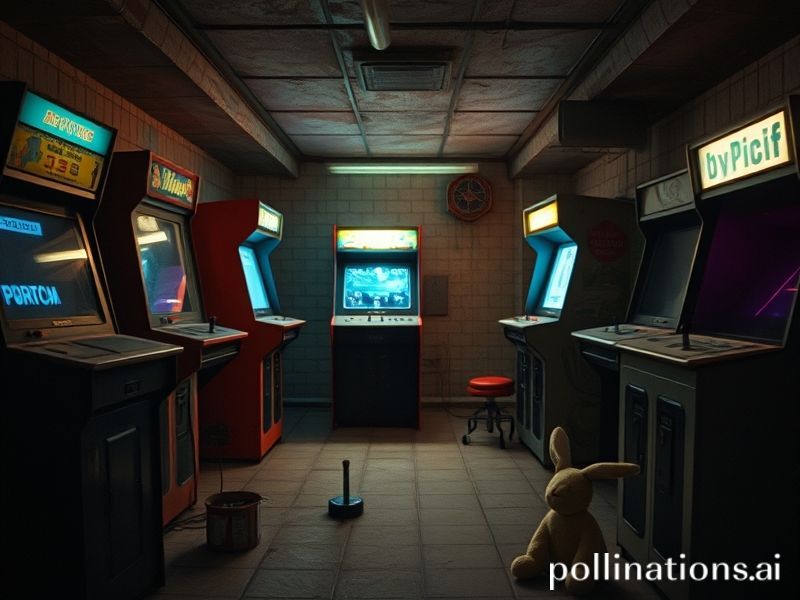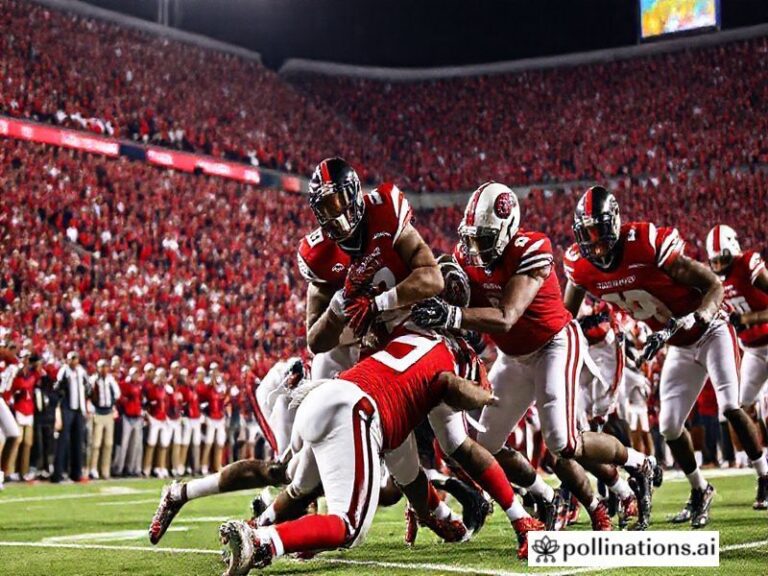State of Play: How the Whole World Became One Rigged Game Where Everyone’s Losing in Style
State of Play: The Great Global Game Where Everyone’s Losing but Pretending to Win
By the time you read this, the scoreboard has already changed—but don’t worry, the scorekeepers never agreed on the rules anyway. From Washington to Wuhan, Davos to Dakar, the phrase “state of play” has metastasized from sports cliché to geopolitical diagnosis, a polite euphemism for “we’re improvising on quicksand.” The field is officially everywhere: microchips, mangroves, meme stocks, and mid-air spy balloons. The only thing consistent is the collective refusal to admit we’re playing Calvinball with live ammunition.
Take trade, the original multiplayer blood sport. Washington just slapped higher tariffs on Chinese EVs “to protect American innovation,” which is a charming way of saying “we’re terrified BYD will sell a $10,000 car that doesn’t burst into flames.” Beijing retaliated by banning Intel chips “for national security,” translation: “our own chips can now almost run Excel without swearing.” Meanwhile, the EU—ever the referee who brought a white flag to a knife fight—announced an “open strategic autonomy” plan, a document so oxymoronic it needs its own oxygen mask. Net result: consumers worldwide pay more for slower gadgets, but at least we get to wave different flags while doing it.
Currency markets resemble a poker table where every player thinks they’re bluffing better than the next guy. The dollar flexes because it still owns the casino chips, the euro limps along like a trust-fund kid discovering the allowance is finite, and the yen has become the designated driver—sober, reliable, deeply unpopular at parties. Cryptocurrencies orbit the table like vultures wearing VR headsets, promising decentralization while centralized exchanges file for bankruptcy faster than you can say “Mt. Gox 2: Electric Rugpull.” And in a dusty office somewhere, the IMF updates its spreadsheet labeled “Countries Currently Defaulting” only to find the macro keeps auto-filling the entire column.
Climate negotiations, meanwhile, are the group project no one wanted but everyone Instagrams. The Global North shows up with PowerPoints about net-zero deadlines conveniently scheduled for after their own retirements. The Global South counters with a slideshow of actual floods and politely requests the cash promised back when “An Inconvenient Truth” was still a fresh horror. Everyone agrees to “phase down” coal—the diplomatic equivalent of promising to drink less while ordering another round. In the end, the final communiqué is hailed as “historic” because it contains the word “urgent” seven times, up from six in Glasgow.
On the digital frontier, the game has evolved into a contact sport played with zeroes and ones. Taiwan manufactures 90 percent of the world’s advanced semiconductors, making the island both the planet’s motherboard and its most precarious chess piece. Every time a U.S. politician tweets about “standing with Taipei,” Beijing adds another aircraft carrier to the shopping cart. Meanwhile, teenagers in Lagos mine Bitcoin on salvaged GPUs, inadvertently keeping the global network secure while their government bans Twitter to “protect national cohesion.” The irony, like the heat in their improvised server farm, is stifling.
And let us not neglect the grandstands: the voters, doomscrolling between Netflix episodes. From Delhi to Detroit, the same populist promise echoes—“We’ll make the game fair again.” The subtext is universal: restore a golden era that existed mostly in campaign ads and sepia filters. Electoral outcomes swing like mood rings, but the underlying trend is bipartisan cynicism, now available in both autocrat and liberal flavors. Satisfaction guaranteed or your democracy back (some assembly required, batteries not included).
So what is the actual state of play? Picture a massive multiplayer online game where half the players are cheating, a quarter are rage-quitting, and the servers are on fire—but everyone’s still mashing “respawn” because the alternative is admitting the game was rigged from level one. Victory, at this point, is simply avoiding sudden-death overtime. The rest is just commentary, preferably served with a stiff drink and the delusion of a halftime break.







